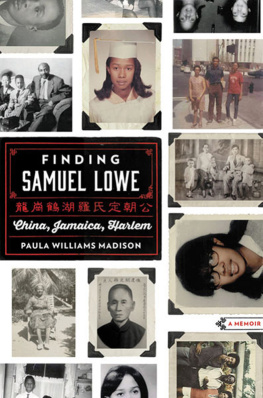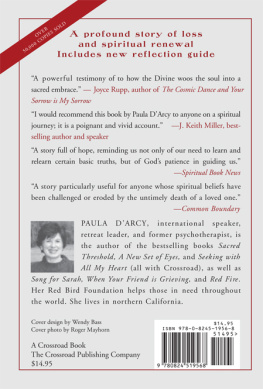Gripping.... Tells the story of her daughters death in a moving but unsentimental way... transforming an otherwise devastating experience.
Alicia Borinsky, Ms. magazine
Has all the lyrical intensityeven on occasion, the profound joythat made her first novel, The House of the Spirits, so exciting.
Cleveland Plain Dealer
Isabel recounts a life of color and sweep.... An entertaining, glamorous book.
Shirley Abbott, Boston Sunday Globe
This true story of Allendes life is even more wonderful, spirited and humorous than its imaginary rendition in her first novel.
San Francisco Examiner
A non-fiction masterpiece... Paula is a breathtaking tour de force.
Buffalo News
Paula comes to us in a shimmeringly beautiful translation by Margaret Sayers Peden. There is not a page in it without something wonderful.
St. Petersburg Times

PAULA FRIAS ALLENDE

Contents
We did not come to remain whole.
We came to lose our leaves like the trees,
The trees that are broken
And start again, drawing up from the great roots.
ROBERT BLY
In December 1991 my daughter, Paula, fell gravely ill and soon thereafter sank into a coma. These pages were written during the interminable hours spent in the corridors of a Madrid hospital and in the hotel room where I lived for several months, as well as beside her bed in our home in California during the summer and fall of 1992.

 L ISTEN, PAULA. I AM GOING TO TELL YOU A STORY, SO that when you wake up you will not feel so lost. The legend of our family begins at the end of the last century, when a robust Basque sailor disembarked on the coast of Chile with his mothers reliquary strung around his neck and his head swimming with plans for greatness. But why start so far back? It is enough to say that those who came after him were a breed of impetuous women and men with sentimental hearts and strong arms fit for hard work. Some few irascible types died frothing at the mouth, although the cause may not have been rage, as evil tongues had it, but, rather, some local pestilence. The Basques descendants bought fertile land on the outskirts of the capital, which with time increased in value; they became more refined and constructed lordly mansions with great parks and groves; they wed their daughters to rich young men from established families; they educated their children in rigorous religious schools; and thus over the course of the years they were integrated into a proud aristocracy of landowners that prevailed for more than a centuryuntil the whirlwind of modern times replaced them with technocrats and businessmen. My grandfather was one of the former, the good old families, but his father died young of an unexplained shotgun wound. The details of what happened that fateful night were never revealed, but it could have been a duel, or revenge, or some accident of love. In any case, his family was left without means and, because he was the oldest, my grandfather had to drop out of school and look for work to support his mother and educate his younger brothers. Much later, when he had become a wealthy man to whom others doffed their hats, he confessed to me that genteel poverty is the worst of all because it must be concealed. He was always well turned outin his fathers clothes, altered to fit, the collars starched stiff and suits well pressed to disguise the threadbare cloth. Those years of penury tempered his character; in his credo, life was strife and hard work, and an honorable man should not pass through this world without helping his neighbor. Still young, he already exhibited the concentration and integrity that were his characteristics; he was made of the same hard stone as his ancestors and, like many of them, had his feet firmly on the ground. Even so, some small part of his soul drifted toward the abyss of dreams. Which was what allowed him to fall in love with my grandmother, the youngest of a family of twelve, all eccentrically and deliciously bizarrelike Teresa, who at the end of her life began to sprout the wings of a saint and at whose death all the roses in the Parque Japons withered overnight. Or Ambrosio, a dedicated carouser and fornicator, who was known at moments of rare generosity to remove all his clothing in the street and hand it to the poor. I grew up listening to stories about my grandmothers ability to foretell the future, read minds, converse with animals, and move objects with her gaze. Everyone says that once she moved a billiard table across a room, but the only thing I ever saw move in her presence was an insignificant sugar bowl that used to skitter erratically across the table at tea time. These gifts aroused certain misgivings, and many eligible suitors were intimidated by her, despite her charms. My grandfather, however, regarded telepathy and telekinesis as innocent diversions and in no way a serious obstacle to marriage. The only thing that concerned him was the difference in their ages. My grandmother was much younger than he, and when he first met her she was still playing with dolls and walking around clutching a grimy little pillow. Because he was so used to seeing her as a young girl, he was unaware of his passion for her until one day she appeared in a long dress and with her hair up, and then the revelation of a love that had been gestating for years threw him into such a fit of shyness that he stopped calling. My grandmother divined his state of mind before he himself was able to undo the tangle of his own feelings and sent him a letter, the first of many she was to write him at decisive moments in their lives. This was not a perfumed billet-doux testing the waters of their relationship, but a brief note penciled on lined paper asking him straight out whether he wanted to marry her and, if so, when. Several months later they were wed. Standing before the altar, the bride was a vision from another era, adorned in ivory lace and a riot of wax orange blossoms threaded through her chignon. When my grandfather saw her, he knew he would love her obstinately till the end of his days.
L ISTEN, PAULA. I AM GOING TO TELL YOU A STORY, SO that when you wake up you will not feel so lost. The legend of our family begins at the end of the last century, when a robust Basque sailor disembarked on the coast of Chile with his mothers reliquary strung around his neck and his head swimming with plans for greatness. But why start so far back? It is enough to say that those who came after him were a breed of impetuous women and men with sentimental hearts and strong arms fit for hard work. Some few irascible types died frothing at the mouth, although the cause may not have been rage, as evil tongues had it, but, rather, some local pestilence. The Basques descendants bought fertile land on the outskirts of the capital, which with time increased in value; they became more refined and constructed lordly mansions with great parks and groves; they wed their daughters to rich young men from established families; they educated their children in rigorous religious schools; and thus over the course of the years they were integrated into a proud aristocracy of landowners that prevailed for more than a centuryuntil the whirlwind of modern times replaced them with technocrats and businessmen. My grandfather was one of the former, the good old families, but his father died young of an unexplained shotgun wound. The details of what happened that fateful night were never revealed, but it could have been a duel, or revenge, or some accident of love. In any case, his family was left without means and, because he was the oldest, my grandfather had to drop out of school and look for work to support his mother and educate his younger brothers. Much later, when he had become a wealthy man to whom others doffed their hats, he confessed to me that genteel poverty is the worst of all because it must be concealed. He was always well turned outin his fathers clothes, altered to fit, the collars starched stiff and suits well pressed to disguise the threadbare cloth. Those years of penury tempered his character; in his credo, life was strife and hard work, and an honorable man should not pass through this world without helping his neighbor. Still young, he already exhibited the concentration and integrity that were his characteristics; he was made of the same hard stone as his ancestors and, like many of them, had his feet firmly on the ground. Even so, some small part of his soul drifted toward the abyss of dreams. Which was what allowed him to fall in love with my grandmother, the youngest of a family of twelve, all eccentrically and deliciously bizarrelike Teresa, who at the end of her life began to sprout the wings of a saint and at whose death all the roses in the Parque Japons withered overnight. Or Ambrosio, a dedicated carouser and fornicator, who was known at moments of rare generosity to remove all his clothing in the street and hand it to the poor. I grew up listening to stories about my grandmothers ability to foretell the future, read minds, converse with animals, and move objects with her gaze. Everyone says that once she moved a billiard table across a room, but the only thing I ever saw move in her presence was an insignificant sugar bowl that used to skitter erratically across the table at tea time. These gifts aroused certain misgivings, and many eligible suitors were intimidated by her, despite her charms. My grandfather, however, regarded telepathy and telekinesis as innocent diversions and in no way a serious obstacle to marriage. The only thing that concerned him was the difference in their ages. My grandmother was much younger than he, and when he first met her she was still playing with dolls and walking around clutching a grimy little pillow. Because he was so used to seeing her as a young girl, he was unaware of his passion for her until one day she appeared in a long dress and with her hair up, and then the revelation of a love that had been gestating for years threw him into such a fit of shyness that he stopped calling. My grandmother divined his state of mind before he himself was able to undo the tangle of his own feelings and sent him a letter, the first of many she was to write him at decisive moments in their lives. This was not a perfumed billet-doux testing the waters of their relationship, but a brief note penciled on lined paper asking him straight out whether he wanted to marry her and, if so, when. Several months later they were wed. Standing before the altar, the bride was a vision from another era, adorned in ivory lace and a riot of wax orange blossoms threaded through her chignon. When my grandfather saw her, he knew he would love her obstinately till the end of his days.
To me, they were always Tata and Mem. Of their children, only my mother will figure in this story, because if I begin to tell you about all the rest of the tribe we shall never be finished, and besides, the ones who are still living are very far away. Thats what happens to exiles; they are scattered to the four winds and then find it extremely difficult to get back together again. My mother was born between the two world wars, on a fine spring day in the 1920s. She was a sensitive girl, temperamentally unsuited to joining her brothers in their sweeps through the attic to catch mice they preserved in bottles of Formol. She led a sheltered life within the walls of her home and her school; she amused herself with charitable works and romantic novels, and had the reputation of being the most beautiful girl ever seen in this family of enigmatic women. From the time of puberty, she had lovesick admirers buzzing around like flies, young men her father held at bay and her mother analyzed with her tarot cards; these innocent flirtations were cut short when a talented and equivocal young man appeared and effortlessly dislodged his rivals, fulfilling his destiny and filling my mothers heart with uneasy emotions. That was your grandfather Toms, who disappeared in a fog, and the only reason I mention him, Paula, is because some of his blood flows in your veins. This clever man with a quick mind and merciless tongue was too intelligent and free of prejudice for that provincial society, a rara avis in the Santiago of his time. It was said that he had a murky past; rumors flew that he belonged to the Masonic sect, and so was an enemy of the Church, and that he had a bastard son hidden away somewhere, but Tata could not put forward any of these arguments to dissuade his daughter because he lacked proof, and my grandfather was not a man to stain anothers reputation without good reason. In those days Chile was like a mille-feuille pastry. It had more castes than India, and there was a pejorative term to set every person in his or her rightful place:















 L ISTEN, PAULA. I AM GOING TO TELL YOU A STORY, SO that when you wake up you will not feel so lost. The legend of our family begins at the end of the last century, when a robust Basque sailor disembarked on the coast of Chile with his mothers reliquary strung around his neck and his head swimming with plans for greatness. But why start so far back? It is enough to say that those who came after him were a breed of impetuous women and men with sentimental hearts and strong arms fit for hard work. Some few irascible types died frothing at the mouth, although the cause may not have been rage, as evil tongues had it, but, rather, some local pestilence. The Basques descendants bought fertile land on the outskirts of the capital, which with time increased in value; they became more refined and constructed lordly mansions with great parks and groves; they wed their daughters to rich young men from established families; they educated their children in rigorous religious schools; and thus over the course of the years they were integrated into a proud aristocracy of landowners that prevailed for more than a centuryuntil the whirlwind of modern times replaced them with technocrats and businessmen. My grandfather was one of the former, the good old families, but his father died young of an unexplained shotgun wound. The details of what happened that fateful night were never revealed, but it could have been a duel, or revenge, or some accident of love. In any case, his family was left without means and, because he was the oldest, my grandfather had to drop out of school and look for work to support his mother and educate his younger brothers. Much later, when he had become a wealthy man to whom others doffed their hats, he confessed to me that genteel poverty is the worst of all because it must be concealed. He was always well turned outin his fathers clothes, altered to fit, the collars starched stiff and suits well pressed to disguise the threadbare cloth. Those years of penury tempered his character; in his credo, life was strife and hard work, and an honorable man should not pass through this world without helping his neighbor. Still young, he already exhibited the concentration and integrity that were his characteristics; he was made of the same hard stone as his ancestors and, like many of them, had his feet firmly on the ground. Even so, some small part of his soul drifted toward the abyss of dreams. Which was what allowed him to fall in love with my grandmother, the youngest of a family of twelve, all eccentrically and deliciously bizarrelike Teresa, who at the end of her life began to sprout the wings of a saint and at whose death all the roses in the Parque Japons withered overnight. Or Ambrosio, a dedicated carouser and fornicator, who was known at moments of rare generosity to remove all his clothing in the street and hand it to the poor. I grew up listening to stories about my grandmothers ability to foretell the future, read minds, converse with animals, and move objects with her gaze. Everyone says that once she moved a billiard table across a room, but the only thing I ever saw move in her presence was an insignificant sugar bowl that used to skitter erratically across the table at tea time. These gifts aroused certain misgivings, and many eligible suitors were intimidated by her, despite her charms. My grandfather, however, regarded telepathy and telekinesis as innocent diversions and in no way a serious obstacle to marriage. The only thing that concerned him was the difference in their ages. My grandmother was much younger than he, and when he first met her she was still playing with dolls and walking around clutching a grimy little pillow. Because he was so used to seeing her as a young girl, he was unaware of his passion for her until one day she appeared in a long dress and with her hair up, and then the revelation of a love that had been gestating for years threw him into such a fit of shyness that he stopped calling. My grandmother divined his state of mind before he himself was able to undo the tangle of his own feelings and sent him a letter, the first of many she was to write him at decisive moments in their lives. This was not a perfumed billet-doux testing the waters of their relationship, but a brief note penciled on lined paper asking him straight out whether he wanted to marry her and, if so, when. Several months later they were wed. Standing before the altar, the bride was a vision from another era, adorned in ivory lace and a riot of wax orange blossoms threaded through her chignon. When my grandfather saw her, he knew he would love her obstinately till the end of his days.
L ISTEN, PAULA. I AM GOING TO TELL YOU A STORY, SO that when you wake up you will not feel so lost. The legend of our family begins at the end of the last century, when a robust Basque sailor disembarked on the coast of Chile with his mothers reliquary strung around his neck and his head swimming with plans for greatness. But why start so far back? It is enough to say that those who came after him were a breed of impetuous women and men with sentimental hearts and strong arms fit for hard work. Some few irascible types died frothing at the mouth, although the cause may not have been rage, as evil tongues had it, but, rather, some local pestilence. The Basques descendants bought fertile land on the outskirts of the capital, which with time increased in value; they became more refined and constructed lordly mansions with great parks and groves; they wed their daughters to rich young men from established families; they educated their children in rigorous religious schools; and thus over the course of the years they were integrated into a proud aristocracy of landowners that prevailed for more than a centuryuntil the whirlwind of modern times replaced them with technocrats and businessmen. My grandfather was one of the former, the good old families, but his father died young of an unexplained shotgun wound. The details of what happened that fateful night were never revealed, but it could have been a duel, or revenge, or some accident of love. In any case, his family was left without means and, because he was the oldest, my grandfather had to drop out of school and look for work to support his mother and educate his younger brothers. Much later, when he had become a wealthy man to whom others doffed their hats, he confessed to me that genteel poverty is the worst of all because it must be concealed. He was always well turned outin his fathers clothes, altered to fit, the collars starched stiff and suits well pressed to disguise the threadbare cloth. Those years of penury tempered his character; in his credo, life was strife and hard work, and an honorable man should not pass through this world without helping his neighbor. Still young, he already exhibited the concentration and integrity that were his characteristics; he was made of the same hard stone as his ancestors and, like many of them, had his feet firmly on the ground. Even so, some small part of his soul drifted toward the abyss of dreams. Which was what allowed him to fall in love with my grandmother, the youngest of a family of twelve, all eccentrically and deliciously bizarrelike Teresa, who at the end of her life began to sprout the wings of a saint and at whose death all the roses in the Parque Japons withered overnight. Or Ambrosio, a dedicated carouser and fornicator, who was known at moments of rare generosity to remove all his clothing in the street and hand it to the poor. I grew up listening to stories about my grandmothers ability to foretell the future, read minds, converse with animals, and move objects with her gaze. Everyone says that once she moved a billiard table across a room, but the only thing I ever saw move in her presence was an insignificant sugar bowl that used to skitter erratically across the table at tea time. These gifts aroused certain misgivings, and many eligible suitors were intimidated by her, despite her charms. My grandfather, however, regarded telepathy and telekinesis as innocent diversions and in no way a serious obstacle to marriage. The only thing that concerned him was the difference in their ages. My grandmother was much younger than he, and when he first met her she was still playing with dolls and walking around clutching a grimy little pillow. Because he was so used to seeing her as a young girl, he was unaware of his passion for her until one day she appeared in a long dress and with her hair up, and then the revelation of a love that had been gestating for years threw him into such a fit of shyness that he stopped calling. My grandmother divined his state of mind before he himself was able to undo the tangle of his own feelings and sent him a letter, the first of many she was to write him at decisive moments in their lives. This was not a perfumed billet-doux testing the waters of their relationship, but a brief note penciled on lined paper asking him straight out whether he wanted to marry her and, if so, when. Several months later they were wed. Standing before the altar, the bride was a vision from another era, adorned in ivory lace and a riot of wax orange blossoms threaded through her chignon. When my grandfather saw her, he knew he would love her obstinately till the end of his days.